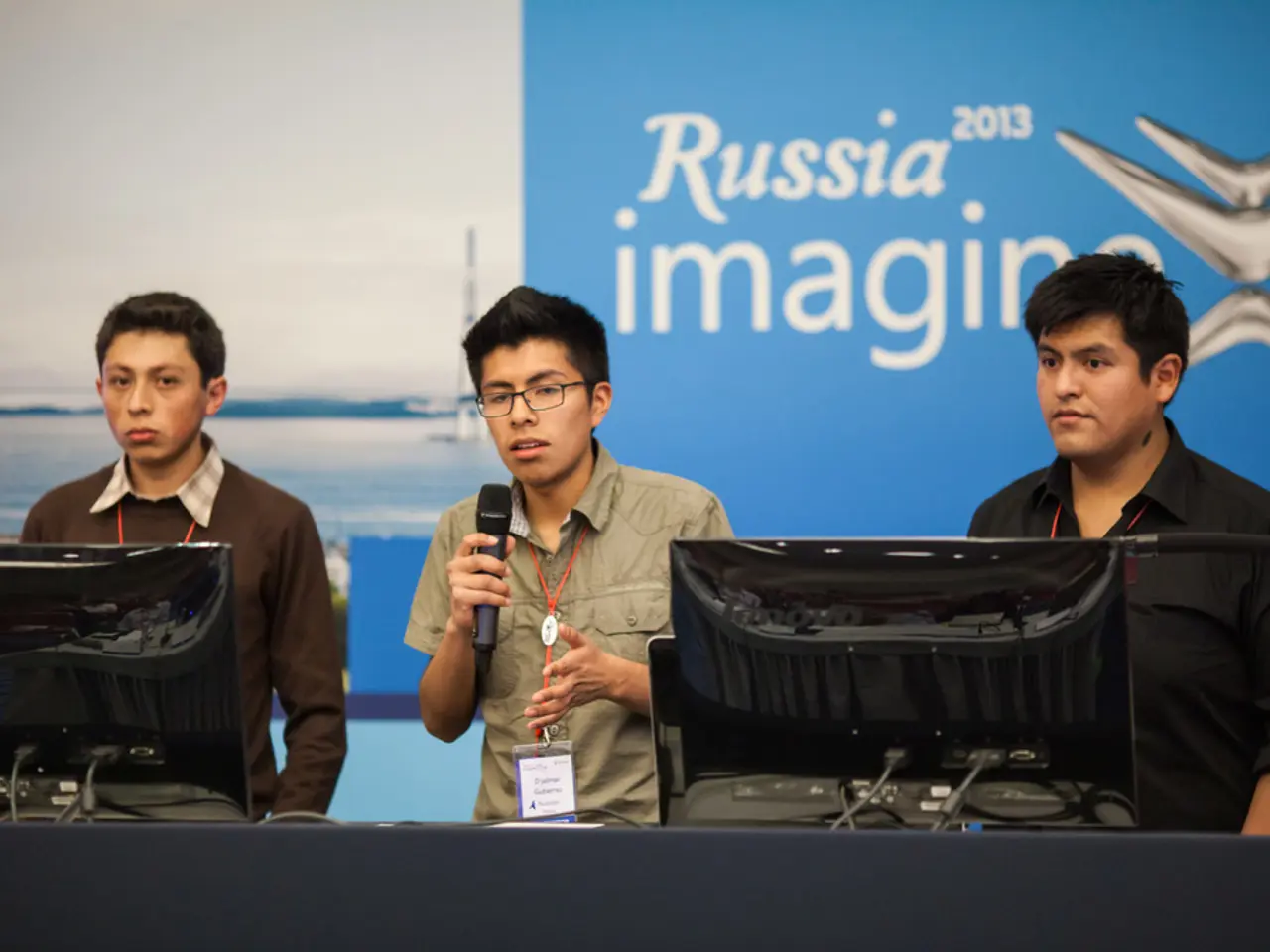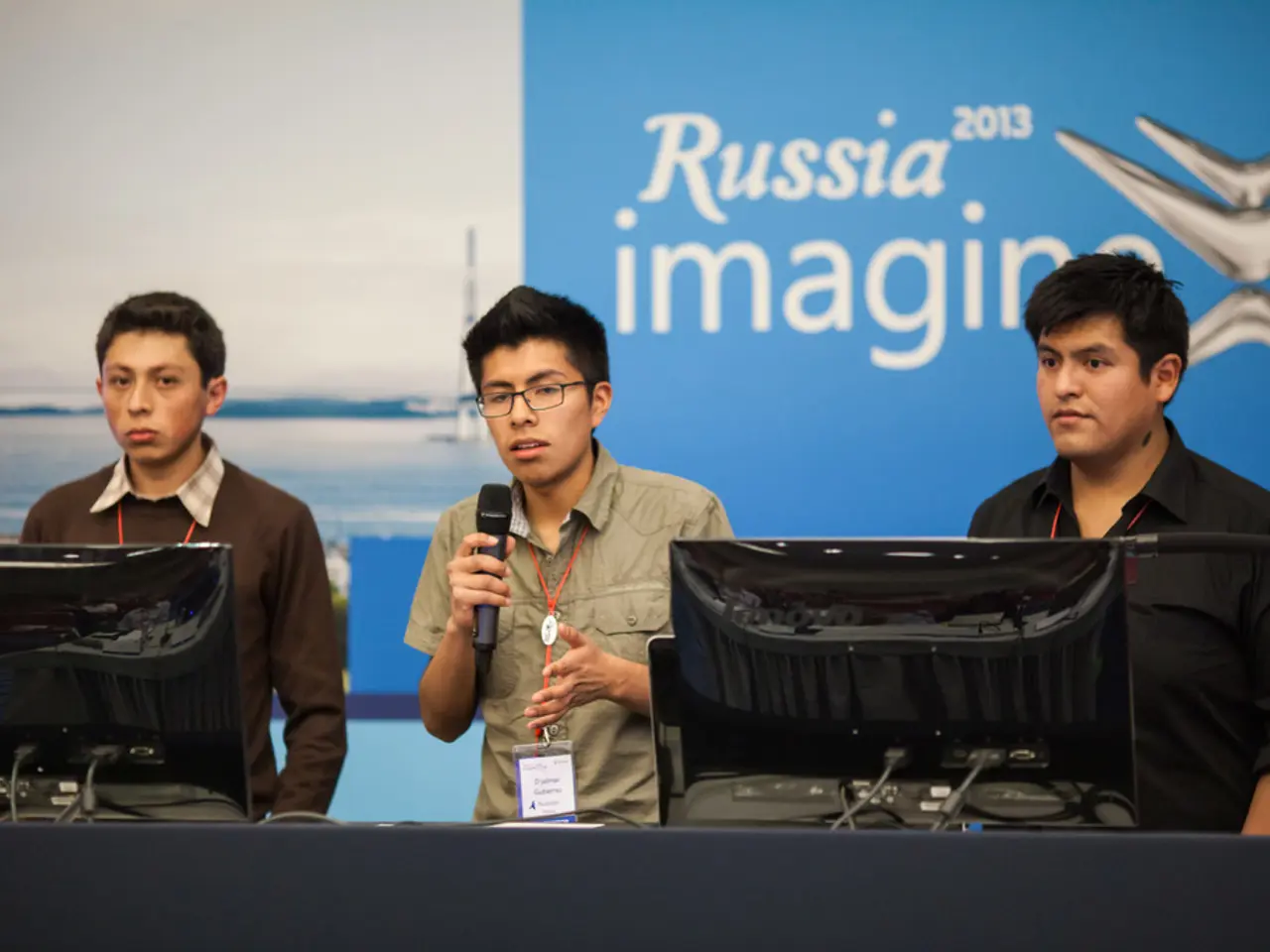Moscow's Foreign Ministry is summoning Ambassador Lambsdorff.
In the ongoing territorial dispute between Russia and Japan over the Southern Kuril Islands, also known as the Northern Territories by Japan, a new chapter has been written with a series of diplomatic exchanges between Germany and Russia.
The German ambassador to Moscow, Alexander Graf Lambsdorff, found himself at the centre of the storm when he criticized Russia's military presence on the Southern Kurils, which Japan claims as its own territory. The Russian Foreign Ministry summoned Ambassador Lambsdorff to inform him about "retaliatory measures" in response to the alleged persecution of Russian journalists in Germany.
The ambassador's statements were seen as particularly offensive by the German side, given the year marks the 80th anniversary of the end of World War II. The Russian Foreign Ministry asserted that Russian sovereignty over the Southern Kuril Islands is undisputed, a post-war order recognized by the United Nations. Moscow accused Ambassador Petra Sigmund, the German ambassador to Japan, of openly attacking Russia's territorial integrity.
However, the German embassy in Moscow rejected the accusation that the statements made by Ambassador Lambsdorff violated Russian sovereignty. Ambassador Lambsdorff himself rejected the accusations made against him, stating that Russia's war in Ukraine was a more pressing concern than a visit to the Japanese city of Nemuro, which he criticized as an opportunity for protest.
This dispute between Russia and Japan originates from the aftermath of World War II. At the war’s end, the Soviet Union occupied the entire Kuril Islands chain, including the four southernmost islands, which Japan claims as its own territory. Since then, Russia (as the Soviet Union’s successor) has administered these islands, but Japan disputes this sovereignty, insisting that the islands rightfully belong to Japan.
The disagreement over sovereignty has prevented Russia and Japan from signing a formal peace treaty to conclusively end World War II hostilities between them. In recent years, tensions have grown due to Russia’s increased military presence and modernization on the Southern Kurils. Japan describes Russia’s military buildup there as illegal and a threat to regional stability.
The territorial dispute between Russia and Japan, therefore, is not just a bilateral issue but has broader implications for international politics. Russia's revisionism is a problem in international politics today, as it is Moscow that knowingly and persistently violates both the basic principles of the European peace order and those of the UN Charter.
As the diplomatic exchanges between Germany and Russia continue, it remains to be seen how this dispute will be resolved and whether it will further escalate tensions in the region.
- The ongoing territorial dispute between Russia and Japan over the Southern Kuril Islands, a matter of significant importance in international politics, has led to diplomatic exchanges that extend beyond bilateral relations, as Germany has become involved, given the tension it creating in the region and Russia's revisionism.
- The involvement of Germany in the territorial dispute between Russia and Japan, over the Southern Kuril Islands, has resulted in a series of disagreements, particularly over Russia's military presence on the islands, which has been criticized by the German ambassador, sparking political tensions and war-and-conflicts-related discussions.







